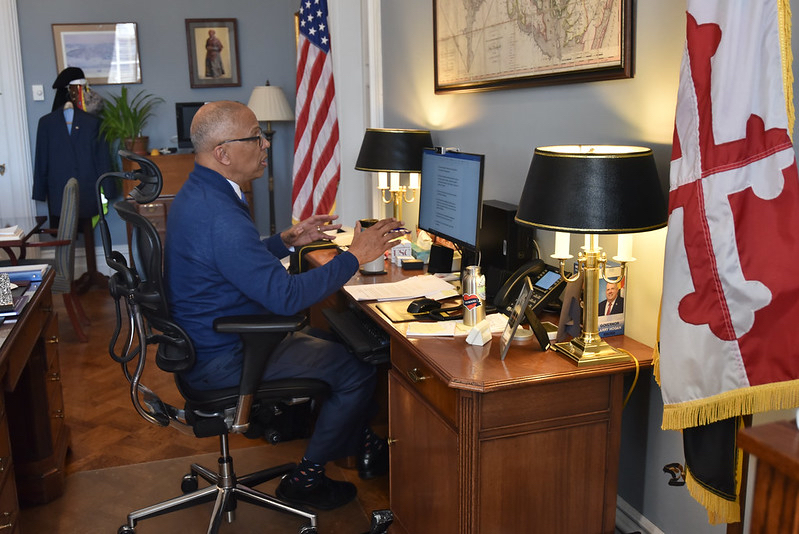Have a story idea
Have a story idea? Send it to us here.

Source : Maryland Lt. Governor Rutherford Virtually Speaks at the State Procurement Officer Graduation (Flickr)
January 19, 2023
Author : Patty Allen
The U.S. federal government is taking a more and more proactive approach to facilitating equitable access to public projects and government dollars.
The White House, as Contractor News has reported, plans to boost the proportion of contracts awarded to Small Disadvantaged Businesses (SDBs) by 50%, which they claim will generate $100 billion for such firms.
Government procurement officers can use set-asides and sole-source contracts to help federal and state government agencies to meet various SDB and Disadvantaged Business Enterprise (DBE) contracting goals.
Each federal agency is required by law to set an annual objective for allocating federal funds to DBEs and small businesses. The federal government's overall objectives are as follows:
Individual agencies set their own targets for the percentage of prime and subcontract revenues that should go to small businesses. These agency goals can vary somewhat from the overarching goals of the federal government.
Agencies can use different methodologies to assess the availability of small enterprises, which can very from industry to industry, and across different geographic regions. Methods that are commonly used include:
One government agency that has performed exceptionally well in providing opportunities to small businesses is the Department of Homeland Security (DHS). This fiscal year, the Office of the Chief Procurement Officer at the DHS exceeded contracting goals and prioritized procurement innovation and training.
OCPO revealed that 2,928 enterprises, including 1,931 small businesses, collaborated with DHS for the first time in 2022.
Last year, the goal for small and disadvantaged enterprises was 17 percent; DHS exceeded that with an unprecedented 18 percent of contract funds.
Contract dollars given to small disadvantaged enterprises ($3.99 billion), service-disabled veteran-owned small businesses ($1.5 billion), HUBZone ($1.19 billion), and women-owned small businesses ($1.75 billion) reached all-time highs. The small business prime obligation was $8.95 billion, which was a billion more than the previous fiscal year and accounted for 40% of overall DHS spending.
"Together, we exemplified our four strategic priorities — empower, collaborate, innovate, and procure — and made this a banner year of ‘firsts’ for DHS,” Chief Procurement Officer Paul Courtney wrote in the latest annual report. "Some of the many firsts we accomplished were record-breaking competition rates, the largest number of first-time businesses working with DHS, and the highest small business achievements in our agency’s history.”
For the fifth year in a row, DHS exceeded its Government-wide spend under management (SUM) and best-in-class (BIC) contract utilization targets. The department's aim for SUM was 60 percent, which it exceeded in FY 2022, while the BIC contract spent goal was 19 percent, which it exceeded by 27 percent. Small business prime contractors received 48% of the contracts, or $2.9 billion.
Another important leader in connecting small businesses with government purchase power is the National Association of State Procurement Officials (NASPO). The group is promoting the use of analytics, leveraging and the tracking of performance metrics from multiple sources. The goal is create more effective contract administration and increase productivity while assuring supply chain reliability and optimizing cash flow.
New kinds of hi-tech automated systems are also being rolled out by procurement officials. Advanced process mining solutions, for example, offer one simple and effective method of identifying leverage points to improve procurement processes.
Agencies are also increasingly using cooperative purchasing when it comes to procurement. The increasing use of cooperative purchasing agreements and piggybacking has enabled public purchasers, particularly those who are time-pressed and understaffed, to keep the lights on both metaphorically and literally. It has also resulted in significant financial success for many national and regional co-ops.
All these processes will ultimately help more small business get their neck into federal contracts.
Category : Disadvantaged Business Enterprises Small Business Enterprises Federal Government State Government Procurement
